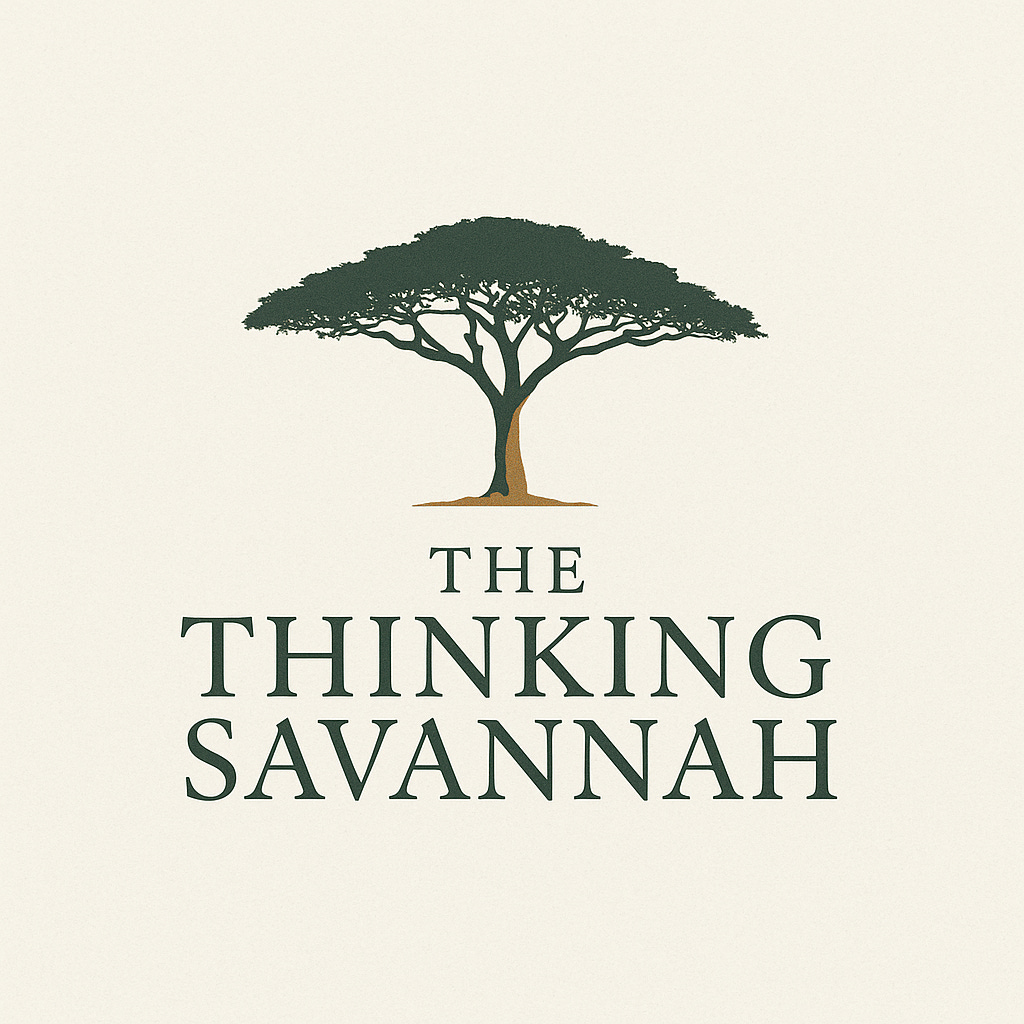What The Thinking Savannah Is About
Welcome — and thank you for finding your way here.
The Thinking Savannah is an independent research platform for exploring African knowledge systems, innovation theory, and political imagination. It’s where I reflect on how Africa has historically understood innovation — not just as invention or industry, but as balance, dialogue, and survival.
✧ Why this space exists
Much of what we call “development” today assumes a universal starting point and a single direction of progress — usually mapped from Europe outward. But what if Africa had always been innovating… just in ways the world chose not to measure?
This platform is an attempt to rethink that. To study Africa’s precolonial political and economic systems not as nostalgia, but as archives of strategic, diplomatic, and environmental intelligence. And to imagine futures that grow from those roots — not in opposition to modernity, but outside the pressures to mimic it.
✧ What I write about here
Expect deep, reflective essays — sometimes accompanied by visuals — on:
Intellectual and diplomatic innovations in African history
The myth of industrial inevitability
Endogenous models of development and governance
Epistemic sovereignty and Afrocentric futurisms
Rethinking innovation beyond machinery
I also publish frameworks, field notes, and visual concepts that distill these ideas.
✧ Who I am
I’m Tapiwa Kufahakurotwe, an independent researcher and certified Senior Data Scientist. I hold an MSc in Computer Science with a focus on Data Science, and my work (this blog) explores how computational systems thinking can illuminate African political and epistemic systems — especially where they’ve been ignored or misread.
I’m not affiliated with any institution. This is thought in the wild.
✧ Start with these essays
If you’re new, these posts will give you a strong foundation:
You can also browse the full archive anytime.
✧ Stay connected
Subscribe to get essays in your inbox, and if anything resonates, share it with a friend or colleague.
Every reader helps make this inquiry more visible, more relevant, and more rooted.
Thanks for thinking with me.
— Tapiwa


